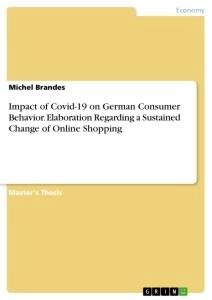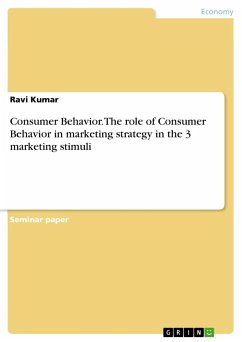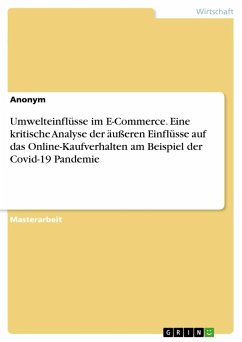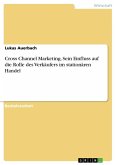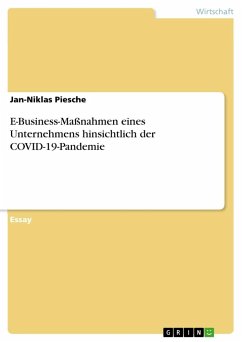Master's Thesis from the year 2021 in the subject Business economics - Offline Marketing and Online Marketing, Hamburg School of Business Administration gGmbH, language: English, abstract: The goal of this study was to elaborate the differences between COVID-19 induced and a potentially restriction free consumer behavior in 2024 regarding a sustained change of online shopping and the usage of digital services. Two different scenarios were developed (I) asking participants about their behavior during the COVID-19 pandemic and (II) asking participants about their behavior in a pandemic and restriction free environment in 2024. In order to elaborate potential effects, a research model was derived based on a conceptual framework investigating the long-term adherence of behavioral changes combined with item relationships regarding the sustained usage of services. The data was derived through online questionnaires. Afterwards, the conducted data was operationalized and elaborated through multiple (M)ANOVA. The key findings were that the satisfaction levels for both online shopping as well as for the digital services significantly decreased in scenario II. According to the research model this allows the conclusion that a sustained usage is negatively affected. Therefore, the observed acceleration of online shopping could potentially slow down and return to average growth levels. The reduction of satisfaction levels was supported by a correlation reduction of the frequency of use and money spent items which confirmed the reduction of online shopping as well as the usage of digital services. For the retail and e-commerce industry the findings allow strategic implications to prepare for the post pandemic consumer behavior. Consumers will potentially carry their positive experiences with them and translate those into future expectations towards retail and e-commerce. To mention are that due to the decreased satisfaction levels the traditional stationary retail store remains relevant and therefore should be strategically emphasized within retailer¿s channel strategy.

